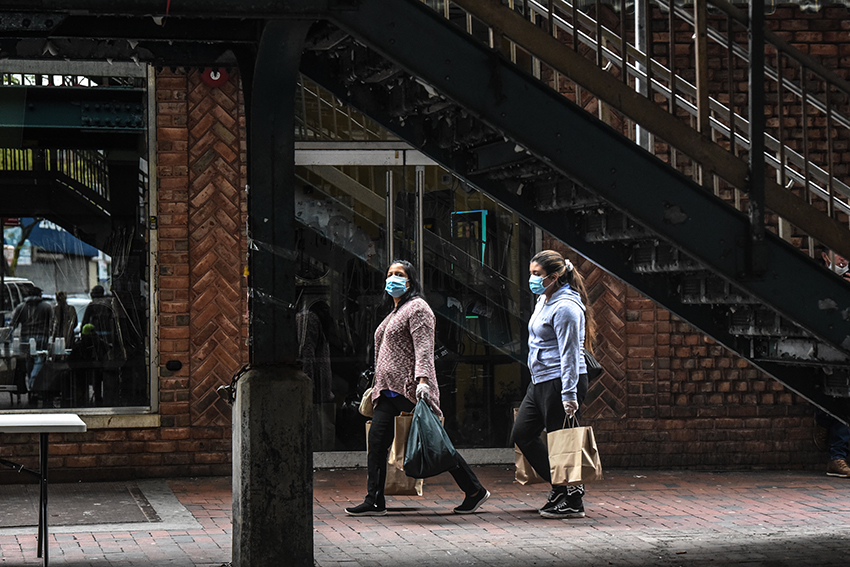
Photo Credit: Stephanie Keith/Stringer/Getty Images
I started to shake with chills, my face became flushed, my temperature soared. The persistent dry coughing I had been experiencing, which I had ascribed to allergies, became intense and, at times, painful. It was Friday the 13th and my luck had turned. It all happened so quickly, as if a switch had been turned from off to on. It was less than two weeks from the first reported case of COVID-19 in New York City.
Six days later when the coughing got even worse, my doctor advised that I go to the nearest emergency room. I tested positive for COVID-19, and a chest X-ray showed I had the early signs of pneumonia. I spent the next month recuperating, quarantined in the bedroom of my New York City apartment. The most jarring thing I experienced during that month was the stunning silence on the street outside my window, normally filled with the hustle and bustle you would expect in the heart of the nation’s largest, most crowded city.
Except for when it wasn’t silent. Every few minutes, the silence was pierced by the wailing siren of a passing ambulance. And then another. And another, a seemingly never-ending flotilla of ambulances rushing my fellow New Yorkers to the nearest hospital.
Each passing ambulance brought to me a flood of two powerful emotions: gratitude and anger. Every moment of every day, I was filled with the most profound gratitude because I was going to survive; I would not need to be hospitalized. I was so lucky that I had excellent health insurance coverage and multiple telehealth options. I had a room in which I could be isolated from my loved ones. I had access to all the water I needed and to a wide variety of healthy food options. And, as I grew stronger, I could do my job from the safety of my apartment; I had internet connectivity and a supportive, empathetic employer.
Yet, my good fortune led me to anger. With each passing siren, I felt my fury grow at how we have allowed our country to become a cesspool of inequality. How many people have none of the advantages that I have? How many have had to deal with this dreadful disease without the assets I had that helped me to recover?
I have worked in public health for nearly 40 years, including nearly two decades at the U.S. Centers for Disease Control and Prevention. Throughout that time, all of us in the field of public health have been laser-focused on the imperative to reduce disparities in health across all populations. We’ve sat through thousands of workshops, seminars and lectures on the topic. We’ve poured our hearts and souls into this challenge. And, we have failed — most health disparities have gotten worse because our nation’s economic inequality has gotten worse, and racism rages on.
One report after another has documented the disproportionate impact that COVID-19 is having on low-income communities and people of color in terms of substantially higher rates of infection, mortality and financial catastrophe. Like perhaps nothing before, this once-in-a-century pandemic has illuminated the obscene inequalities that the United States has tolerated far too long. Inequalities that have grown greater over the past few decades.
Our passionate team at FHI 360 has been highlighting the disproportionate impact of COVID-19 on low-income communities and people of color since the pandemic took hold in the United States. In the coming months, FHI 360 staff will be writing blog posts for Degrees and LinkedIn to document what they are seeing in the communities that we serve, communities that have struggled for so long against inequality. These include youth recently released from the justice system; students, families and staff in disadvantaged schools; individuals living with HIV; migrant farmworkers; and American Indians/Alaskan Natives.
We intend to shine the spotlight on the inequities in our country for as long as it takes to bring forth change. We need to steel ourselves for long, painful fights. The powerful and privileged who benefit from our social inequities will not yield their power or their privileges easily. We, in turn, need to constantly keep in mind that never-ending onslaught of ambulance sirens and stand our ground, saying firmly, “No more.” As written by Hillel Hazakan: If not now, when? If not us, who?
